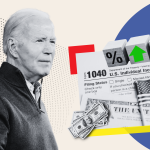Iraq’s heavy reliance on oil revenue, which accounts for over 90% of its government income, makes the country’s budget highly vulnerable to fluctuations in global oil prices. As the second-largest oil producer in OPEC, Iraq faces the challenge of maintaining budget stability in the face of volatile crude prices.
To address this issue, the Iraqi government is exploring alternative revenue sources, aiming to reduce its dependence on oil and make the country’s finances more predictable. This shift is driven by concerns about the long-term sustainability of relying almost entirely on oil exports for budgetary support.
The Iraqi Parliament’s finance committee is taking steps to enhance non-oil revenue collection to stabilize government revenues. Atwan al-Atwani, chairman of the committee, emphasized the importance of diversifying income sources to protect the national budget from oil price instability.
The committee’s focus is to find reliable streams of non-oil income, as the fluctuating oil market has shown the risks of over-reliance on a single commodity for financial stability. This shift is part of a broader strategy to ensure Iraq’s economic resilience against global market dynamics.

However, in the short term, Iraq’s oil revenues could experience a decline due to efforts to comply with OPEC+ production cuts. Iraq had been exceeding its agreed production quotas for months, leading to a reduction in crude exports as part of a commitment to align with OPEC+ supply limits.
In August, crude oil exports dropped to 3.3 million barrels per day, down from higher levels earlier in the summer. This compliance with OPEC+ curbs is part of Iraq’s attempt to stabilize oil prices but comes at the cost of reduced immediate revenue.
Historically, Iraq has struggled to adhere to OPEC’s production control agreements due to its heavy dependence on oil for state financing. This reliance makes it difficult for Iraq to voluntarily cut production, even when global oil prices are low, as it impacts the country’s fiscal health.
Iraq’s consistent overproduction has placed it in a challenging position within OPEC, where it must balance its need for revenue with international agreements to control global oil supply and stabilize prices.
To boost investment in its energy sector and ensure long-term growth, Iraq has made significant changes to its oil and gas contracts. Earlier this year, the Iraqi government transitioned from technical service contracts to profit-sharing agreements, aiming to attract fresh investment from international companies.
This shift is part of a broader strategy to strengthen the country’s energy infrastructure and increase output capacity, positioning Iraq for future economic growth while it simultaneously works to diversify its revenue streams beyond oil.

